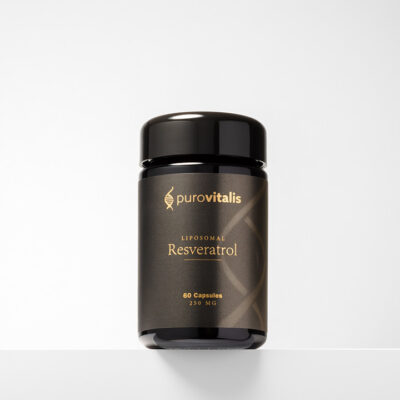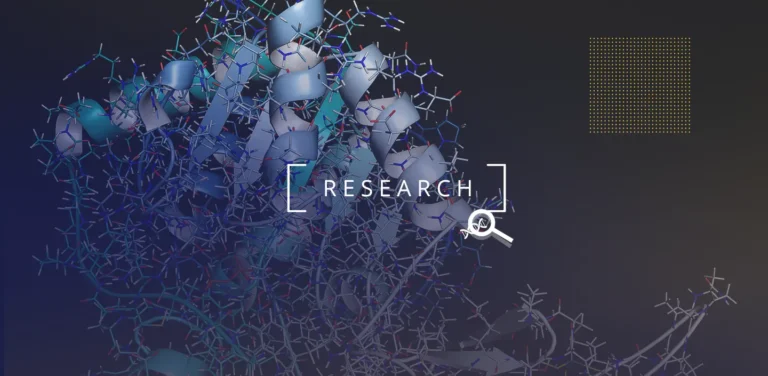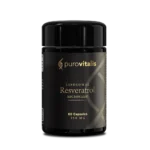
Forskning, der for nylig blev offentliggjort på ScienceDirect, undersøger det utrolige potentiale i resveratrol, et stof, der findes i rødvin, til at forebygge muskeltab og hjerteforstørrelse hos mus. Magien kommer fra resveratrols evne til at aktivere SIRT1. Det kaldes ofte "longevity ", og det baner vejen for en spændende mulighed: Kan det tjene som en potent terapeutisk vej for mennesker?
Et indblik i undersøgelsen: De vigtigste resultater
- Resveratrol, et stof i rødvin, aktiverer SIRT1, et enzym, der er forbundet med longevity.
- Aktivering af SIRT1 stimulerer autofagi, en cellulær genbrugsproces, hos mus.
- Øget autofagi forhindrer muskeltab og hjerteforstørrelse, to skadelige virkninger, der ofte ses ved aldring og sygdom.
- Disse resultater kan potentielt bane vejen for nye terapeutiske tilgange til aldersrelateret muskelsvind og hjertesygdomme.
Autofagiens kraft: Naturens genbrugssystem
Når man dykker ned i undersøgelsen, er den vigtigste proces autofagi - en biologisk proces, der er lige så vigtig, som den er kompleks. Autofagi er vores cellers genbrugsanlæg, der nedbryder nedslidte cellulære komponenter og genbruger dem for at bevare cellernes sundhed og vitalitet. Den spiller en afgørende rolle i at modvirke virkningerne af aldring og sygdom, men ligesom mange andre biologiske systemer har dens effektivitet en tendens til at falde, når vi bliver ældre. Denne nedgang kan føre til en række negative konsekvenser, herunder muskelsvind og hjerteproblemer.
Det vil du måske også synes om: Spermidin og autofagi - alt hvad du behøver at vide
SIRT1: Enzymet for Longevity
I forsøget på at imødegå disse aldersrelaterede bekymringer undersøgte studiet resveratrols potentiale til at stimulere autofagi. I bund og grund forsøgte forskerne at finde ud af, om resveratrol kunne vende disse negative virkninger ved at stimulere "longevity " SIRT1(hvad er sirtuiner?). Deres resultater var forbløffende. Hos mus aktiverede resveratrol SIRT1, hvilket førte til en stigning i autofagi, som igen fungerede som et forsvarsskjold mod muskeltab og hjerteforstørrelse.
For at forstå omfanget af disse resultater er det vigtigt at forstå SIRT1's rolle i vores kroppe. Dette enzym har været stjernen i de seneste videnskabelige undersøgelser på grund af dets evne til at kontrollere vitale cellulære processer som overlevelse og stressrespons. Nogle undersøgelser tyder endda på, at aktivering af SIRT1 kan forlænge forskellige organismers levetid, hvilket har givet det tilnavnet "longevity ". Opdagelsen af, at resveratrol, et stof, der findes i dagligdags fødevarer som rødvin og mørk chokolade, kan aktivere SIRT1, er derfor af enorm videnskabelig og potentiel terapeutisk interesse.
Find ud af alt, hvad du har brug for at vide om resveratrol
Forebyggelse af muskeltab: En stråle af håb mod sarkopeni
Forebyggelse af muskeltab, eller sarkopeni, er et særligt vigtigt aspekt af undersøgelsen. Sarkopeni er en degenerativ tilstand forbundet med aldring, der er karakteriseret ved tab af muskelmasse og -funktion, og som ofte resulterer i skrøbelighed og nedsat livskvalitet. De nuværende behandlingsmuligheder er begrænsede, så fundet af, at resveratrol kan forhindre muskelsvind gennem SIRT1-aktivering og forbedret autofagi, er et håb for fremtidige behandlinger.
Hjertesundhed: Hold udvidelse og sygdom på afstand
På samme måde kastede forskningen også lys over konsekvenserne for hjertesundheden. Hjerteforstørrelse, eller hjertehypertrofi, er et almindeligt symptom på hjertesygdomme. Det er en kompenserende reaktion på øget belastning af hjertet, f.eks. højt blodtryk. Over tid kan denne forstørrelse føre til hjertesvigt. Undersøgelsen viste, at resveratrol forhindrede hjerteforstørrelse hos mus, igen ved at aktivere SIRT1 og øge autofagi, hvilket giver en anden potentiel terapeutisk mulighed for hjertesygdomme.

Oversættelse af resultater til mennesker: En bemærkning om forsigtighed
På trods af begejstringen for disse resultater er det vigtigt at huske, at de er opnået i mus. Den menneskelige biologi er betydeligt mere kompleks, og hvis disse resultater skal omsættes til effektive behandlinger af mennesker, vil det kræve yderligere forskning og grundige kliniske forsøg. Men det løfte, som resveratrol viste i denne undersøgelse, er et solidt fundament for det fremtidige arbejde.

Konklusion
Alt i alt har undersøgelsen fremhævet resveratrols potentiale til at udnytte "longevity ", SIRT1, og stimulere autofagi, hvilket giver beskyttelse mod muskelsvind og hjerteforstørrelse. Denne opdagelse kan bane vejen for en bedre forståelse af, hvordan vores kroppe ældes, og hvordan vi kan gribe ind for at bremse processen. Det kan være begyndelsen på en spændende rejse mod sundhedsmæssige gennembrud, som man længe har ventet på, og som der længe har været behov for.

Liposomal resveratrol maksimale fordele forbedrer sukkerniveauet
Oplev det bedste af resveratrol med Purovitalis' liposomale formel. Prøv det nu!













